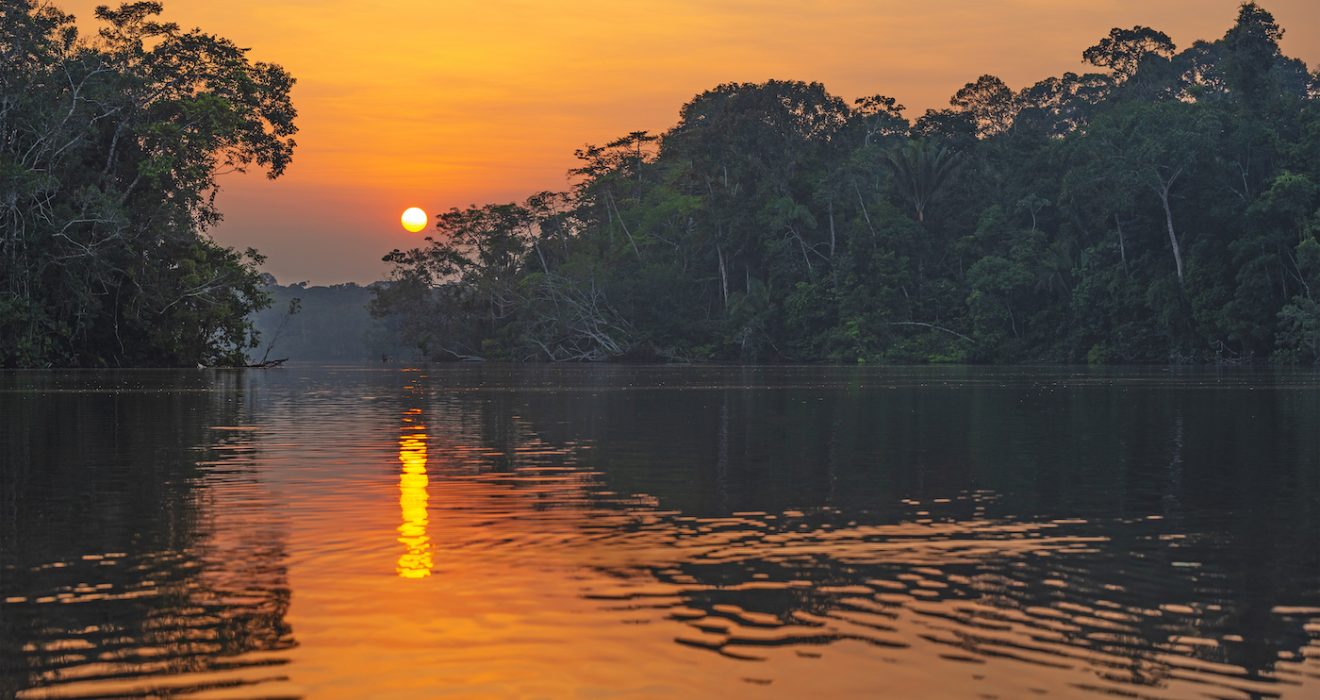In a momentous referendum held over the weekend, Ecuadorians stood united in a historic decision to reject oil drilling in a significant portion of Yasuní National Park, a pristine sanctuary nestled within the heart of the Amazon rainforest. This protected area not only holds ecological significance but is also home to self-isolated Indigenous tribes, making the vote a pivotal moment in the ongoing battle between environmental conservation and resource extraction.
The Heart of the Amazon: Yasuní National Park
Nestled in the northeastern part of Ecuador, Yasuní National Park sprawls across a vast 3,800 square miles of the Amazon rainforest. Recognized as a UNESCO biosphere reserve since 1989, the park is a biodiversity hotspot, boasting an array of bird, reptile, and amphibian species. Notably, it harbors the Tagaeri and Taromenane tribes, who have chosen to live in isolation from the outside world. Beyond its ecological richness, Yasuní also holds Ecuador’s largest reserve of crude oil.
As we delve deeper into the intricacies of Yasuní National Park, it becomes evident that this natural haven is not merely a geographical entity but a complex tapestry of life, where Indigenous communities coexist with an unparalleled diversity of flora and fauna. The Tagaeri and Taromenane, preferring to remain isolated, have thrived amidst the lush greenery, untouched by the external forces that often pose a threat to the delicate balance of such ecosystems.
A Decade of Advocacy and Resistance
The recent referendum is the culmination of more than a decade of tireless efforts by green groups, environmental advocates, and Indigenous activists. The push to preserve Yasuní from oil exploration dates back to 2007 when former President Rafael Correa sought international funding to keep the park oil-free. Despite initial promises, the funds never materialized, and in 2016, Petroecuador, the state-owned oil company, initiated drilling in Block 43, producing approximately 55,000 barrels of oil daily.
The journey of resistance against oil exploration in Yasuní has been fraught with challenges, marked by the relentless determination of activists like Nemonte Nenquimo, an Indigenous Waorani leader and recipient of the Goldman Environmental Prize. Nenquimo’s impassioned statement echoes the sentiments of those who recognize Yasuní as a life-giver, a sanctuary that transcends economic gains. The clash between economic interests and environmental preservation reached a critical juncture, leading to the pivotal referendum that would redefine Ecuador’s approach to its natural treasures.
The Power of the Referendum
This weekend’s referendum saw around 60 percent of Ecuadorian voters supporting the ban on oil drilling in Block 43, a move that requires Petroecuador to dismantle its operations. This decision prevents the extraction of an estimated 726 million barrels of oil valued at $1.2 billion. While critics argue potential economic repercussions, environmental advocates hail the ban as a significant step towards steering Ecuador away from resource extraction and promoting sustainable alternatives like ecotourism.
The significance of this referendum goes beyond the immediate environmental impact; it underscores the power of collective decision-making in shaping the destiny of a nation’s natural resources. The voice of the people, manifested through the referendum, emerges as a beacon guiding Ecuador towards a future where economic prosperity aligns harmoniously with environmental stewardship.
Navigating Economic Concerns and Environmental Progress
Critics contended that Ecuador might be compromising its economic stability by halting drilling, predicting a 1.9 percent reduction in economic growth between 2023 and 2026. Nevertheless, environmental advocates emphasize the long-term benefits, envisioning a shift towards a more sustainable economic trajectory. The ban not only marks a triumph for democracy but also sets a precedent for citizen involvement in crucial decisions regarding the future of Amazonian oil exploration.
While economic concerns are undoubtedly significant, the referendum opens a dialogue about redefining success beyond short-term gains. Ecuador’s commitment to preserving Yasuní signals a paradigm shift, challenging the conventional narrative that economic progress must come at the expense of environmental degradation. The potential economic downturn becomes an investment in a future where the intrinsic value of Yasuní’s biodiversity is recognized, and sustainable alternatives are explored.
A Victory for Democracy and Nature
Environmental collective Yasunidos expressed their elation, stating that the referendum outcome signifies a national consensus in defense of nature, Indigenous peoples, and life itself. Beyond the Yasuní vote, Ecuadorians also approved a separate ban on mining in the Choco Andino forest, reinforcing the nation’s commitment to environmental preservation.
The triumph of democracy is palpable in this referendum, as citizens actively participate in shaping the environmental policies that will define their nation’s legacy. The collective voice against oil drilling in Yasuní and mining in Choco Andino echoes a broader sentiment that places the preservation of natural wonders at the forefront of national priorities.
A Global Implication: Lessons for the World
Ecuador’s historic vote reverberates globally, offering a compelling lesson in balancing economic development with environmental responsibility. As the world grapples with the urgent need for sustainable practices, Ecuador emerges as a trailblazer, demonstrating that nations can redefine progress, prioritize nature, and actively involve citizens in decisions that impact the planet’s health.
Conclusion:
Ecuador’s historic referendum marks a turning point in the delicate balance between economic interests and environmental conservation. As the nation takes a stand against oil drilling in Yasuní National Park, it not only preserves a crucial ecological sanctuary but also paves the way for a more sustainable and nature-centric future. The referendum’s outcome resonates not only within Ecuador but sends a powerful message globally, illustrating the significance of public participation in shaping the destiny of our planet. In this pivotal moment, Ecuador stands as a beacon of hope, proving that environmental victories are achievable through collective determination and a resolute commitment to safeguarding the wonders of our natural world.

